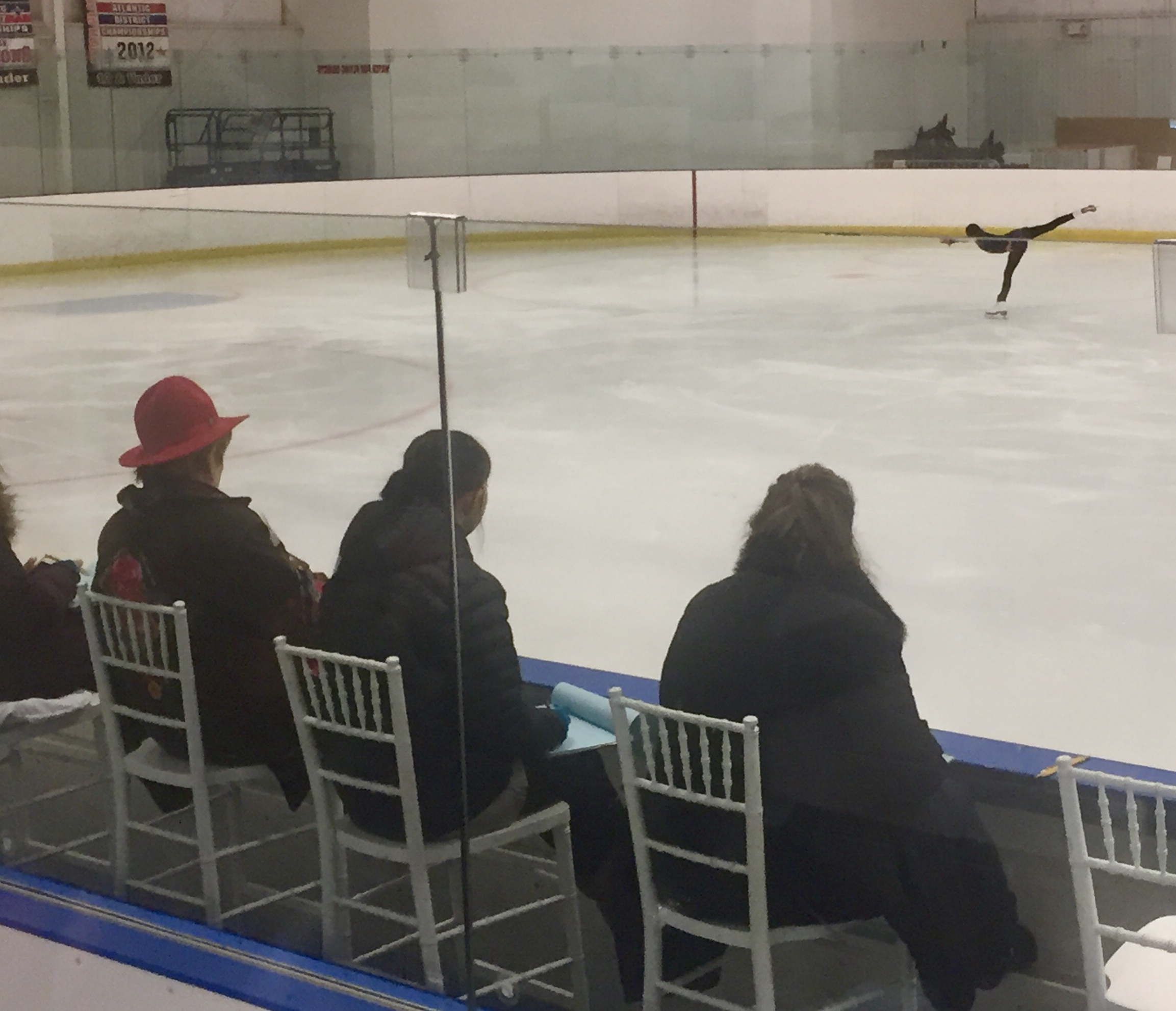Early this year, I applied to be a skating judge because I wanted to become a better and informed skater and also share my skills and knowledge with younger skaters and help them achieve their skating goals. I wanted to improve my technical knowledge by learning how to assess and evaluate and score skaters' programs in competition and test sessions. I felt learning to become a skating judge was another great way to meet and work with knowledgeable and experienced people who share my interest and also allow me to give back to the sport I love so much.
This past Saturday, I had the unique opportunity to work alongside a panel of full time judges and evaluate a Basic Skills skating competition at a local rink in north NJ. It was truly an incredible and rewarding experience as it was my first time judging any figure skating event. As I sat behind the boards which is the best seat in the house to view a skater's performance, I gained a new perspective on skating competitions given my new position. As a judge, I evaluated the technical difficulty and quality of each performance and applied my knowledge of the 6.0 judging system (see my 4/22 post) to determine the score and placement for each skater. I learned to develop my evaluations and formulate scores and write concise and legible comments on my judge's papers. At first, I was a little nervous and not sure of what to expect and if I was judging correctly but once I got the hang of it, I became a natural as one of the referees commented to me. The referee further mentioned that my scoring matched up almost perfectly with the other judges' scores which assured me that I was doing my job right. My experience as a skating judge taught me to be objective, decisive and confident in my judging abilities and helped me learn to handle and control stress.
As a long-time competitor, I always looked at my scores and tried to determine how and why the judges assigned the scores they did and it's funny this time, I was now the one evaluating skaters' abilities and determining scores. I have to admit, judging looks easy but after having judged several events, I can tell you it is not. You have to be completely focused on each competitor and pay close attention to the required elements to ensure the requirements are completed. One has to determine not only the quality of each element skated but also the competitor's skating skills and finally rank each skater relative to each other. It's not as difficult to complete all these tasks when there's three or four skaters in an event; however, when confronted with eight to ten skaters then it becomes much more difficult to evaluate each skater relative to one another for an event. As the skating level becomes more advanced and there are more skaters competing in an event then the 6.0 system is replaced by another judging system called IJS which stands for International Judging System. Very briefly, IJS is used for juvenile levels and higher and the scores are based on cumulative points of which comprises of a technical score (jumps, spins, step sequence,..) and five program component scores (skating skills, transitions, performance, composition and music interpretation). For more information on IJS, please refer to http://www.usfsa.org/story?id=84064
Presently, there are 1,600 volunteers working in a variety of officiating positions and US Figure Skating always welcomes those who are interested in use more officials and judges as they can never have enough to help out with events held by local member clubs. Many judges are current and/or former skaters and parents of skaters. There are even some who enjoy skating and just wants to learn more and participate and contribute to the sport. Judging is a volunteering activity which requires a large amount of time and commitment; however, it truly is a rewarding and most fulfilling experience to be involved and serve the skating community. I will seek to continually expand my knowledge as a skating judge and fulfill this interest by attending judge's school in the coming weeks and also taking online courses in the near future. I am excited and look forward to participating in my next skating competition and I hope to one day become a certified skating judge where I can judge competitions, tests, and more.


